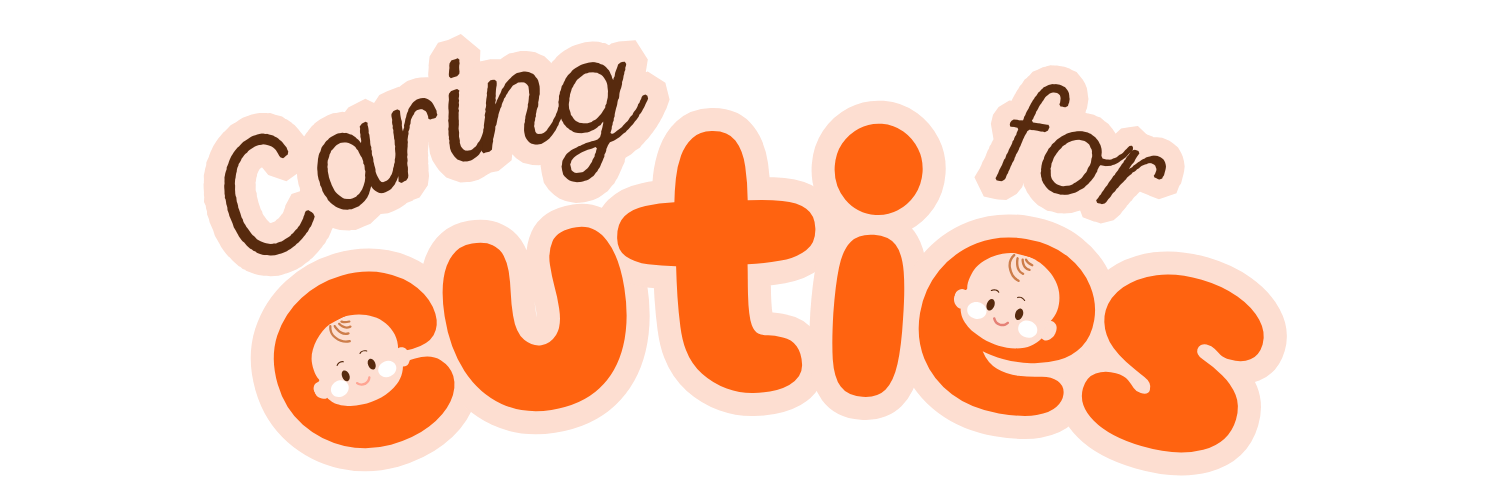Are you feeling unexpected emotional changes during pregnancy or after giving birth? You might wonder if your mental health is at risk. Many women face perinatal mental health issues. It’s important to know the signs that show you need help.

Perinatal mental health is key during pregnancy and after giving birth. Understanding its importance helps women take care of themselves. It’s crucial to seek help when needed. More awareness and support are needed for these issues.
Key Takeaways
- Perinatal mental health issues are common and can affect any woman during pregnancy or postpartum
- Recognizing the signs of perinatal mental health concerns is essential for early intervention
- Maternal mental health has a significant impact on overall health and well-being
- Support systems, including professional help and community resources, are vital for perinatal mental health
- Prioritizing perinatal mental health can improve outcomes for both mothers and babies
- Education and awareness are key to reducing the stigma associated with perinatal mental health issues
Understanding Perinatal Mental Health: A Comprehensive Overview
Perinatal mental health is about a woman’s emotional and psychological state during pregnancy and after giving birth. This time can change a lot, affecting both the mom and the baby. Prenatal mental health is key because it sets the stage for a healthy pregnancy and postpartum period.
Studies show it’s vital to tackle perinatal mental health issues for the best results for moms and babies. Knowing about perinatal mental health helps women face pregnancy and postpartum challenges. They can seek help to keep their well-being in check.
What is Perinatal Mental Health?
Perinatal mental health covers a wide range of feelings, from mild anxiety to severe postpartum depression. It’s important to see that it affects not just the mom but also the baby and the whole family.
The Importance of Mental Wellness During Pregnancy and Postpartum
Mental health is crucial during pregnancy and after giving birth. It helps ensure a healthy pregnancy, a good birth experience, and a strong bond between mom and baby. By focusing on prenatal mental health and tackling any issues, women can lower the risk of problems and make the transition to motherhood easier.
Common Perinatal Mental Health Conditions
Some common perinatal mental health conditions include:
- Perinatal depression
- Anxiety disorders
- Postpartum psychosis
These conditions can greatly affect a woman’s life and her ability to care for herself and her baby. Understanding these conditions and getting help when needed is crucial for a woman’s mental health and well-being.
Persistent Sadness and Emotional Changes
Perinatal depression can show up as lasting sadness. It’s hard to tell apart from normal mood swings during pregnancy and after giving birth. Emotional changes might seem small but can really affect a mom’s happiness and her ability to take care of herself and her baby. Feeling hopeless, empty, or not enjoying things that used to make you happy are signs of this.
Some common signs of persistent sadness and emotional changes related to perinatal depression include:
- Feeling overwhelmed or anxious
- Difficulty sleeping or excessive sleepiness
- Changes in appetite or eating patterns
- Difficulty concentrating or making decisions
It’s key to remember that perinatal depression is treatable. If you or someone you know is feeling persistently sad or emotionally changed, getting help is crucial. A healthcare provider can diagnose and create a plan to manage symptoms and improve well-being.
A
study by the American Psychological Association
shows that perinatal depression affects about 1 in 7 new moms. This shows how vital it is to focus on mental health during pregnancy and after birth. By recognizing the signs of persistent sadness and emotional changes, we can help reduce stigma around perinatal depression. This encourages moms to seek the help they need.
Sleep Disturbances Beyond Normal Pregnancy Changes
Many women experience sleep problems during pregnancy and after giving birth. Some changes are normal, but others might signal mental health issues like postpartum depression. It’s important to tell normal sleep changes from those that need attention.
Normal sleep issues in pregnancy include disrupted sleep patterns due to discomfort or frequent urination. But, if sleep problems get worse, it could mean a bigger issue.
Insomnia vs Normal Pregnancy Sleep Issues
To know if sleep problems are more than usual, look for these signs:
- Persistent trouble falling or staying asleep
- Feeling tired or unrefreshed when waking up
- Feeling very sleepy during the day
These signs might mean you have insomnia or another sleep disorder. These can make postpartum depression worse.
When Sleep Problems Signal Mental Health Concerns
Sleep issues can affect mental health, especially postpartum depression. Bad sleep can make depression symptoms worse. Depression can also mess with sleep. It’s key to tackle sleep problems early to avoid more mental health issues.
| Sleep Problem | Normal Pregnancy Sleep Issue | Insomnia or Other Sleep Disorder |
|---|---|---|
| Disrupted sleep patterns | Common due to discomfort or frequent urination | Persistent and worsening over time |
| Difficulty falling asleep | Occasional due to stress or anxiety | Persistent and interfering with daily life |
By knowing the difference between normal sleep changes and sleep disorders, women can get help when needed. This can help address mental health concerns, including postpartum depression.
Anxiety and Intrusive Thoughts During Pregnancy and Postpartum
Many expectant and new mothers worry a lot. They might worry about the pregnancy, the baby’s health, or if they can be good parents. This worry can be really tough and is a sign of perinatal mental health issues. Anyone can feel this anxiety, no matter their background or past mental health.
Some signs of perinatal anxiety include:
- Excessive worry about the baby’s health or well-being
- Fear of not being a good parent
- Difficulty sleeping due to racing thoughts or worries
- Physical symptoms such as a racing heart, trembling, or sweating
Intrusive thoughts are also a sign of perinatal anxiety. These are unwanted and scary thoughts or images. They can be very frightening for new and expectant mothers. But, it’s important to know these thoughts don’t say anything about a person’s character or parenting skills.
It’s key for expectant and new mothers to know the signs of perinatal anxiety. If they see these signs, they should get help. With the right support and treatment, women can handle their anxiety. This way, they can have a healthy pregnancy and postpartum period.
Changes in Appetite and Eating Patterns
Women may notice changes in how much they eat during pregnancy and after giving birth. Some changes are normal, but others might signal a problem with mental health. It’s important to know the difference to keep both your body and mind healthy.
Understanding Normal vs Concerning Appetite Changes
During pregnancy, you might feel hungrier because of the growing baby and hormonal shifts. But, if you’re losing or gaining a lot of weight, avoiding certain foods, or eating too much, it could be a sign of a mental health issue. These signs might include depression or anxiety.
Impact on Maternal and Fetal Health
Big changes in appetite can harm both you and your baby. If you’re not eating well, you might feel tired, weak, and get sick more easily. For your baby, not getting enough nutrients can slow their growth and increase the risk of being born too small or facing other health problems.
When to Seek Professional Help
If you’re worried about your appetite or other signs of mental health issues, get help right away. A doctor can check your mental health and help with food and treatment plans. Don’t wait to ask for help to protect your health and your baby’s.
- Monitor your appetite and eating patterns
- Seek support from healthcare providers and loved ones
- Prioritize nutrition and mental health
Social Withdrawal and Relationship Changes
Social withdrawal and changes in relationships can be signs of postpartum mental health issues. Hormonal changes and the stress of pregnancy or new parenthood can make you feel isolated. This can make you feel disconnected from your loved ones.
Some common signs of social withdrawal and relationship changes include:
- Avoiding social interactions or feeling disconnected from friends and family
- Experiencing conflict in previously stable relationships
- Feeling overwhelmed by the demands of parenthood
It’s important to know that social support during the perinatal period is key for postpartum mental health. Feeling isolated can make mental health problems worse. So, it’s crucial for new parents to stay connected with their support network.

By being aware of these changes and seeking help when needed, new parents can take the first step towards maintaining good postpartum mental health. They can also build strong, supportive relationships with their loved ones.
| Signs of Social Withdrawal | Importance of Social Support |
|---|---|
| Avoiding social interactions | Helps prevent feelings of isolation |
| Feeling disconnected from loved ones | Provides emotional support and connection |
Physical Symptoms Related to Mental Health
Perinatal mental health issues can show up as physical symptoms. It’s important to talk about all symptoms with healthcare providers. Women in the perinatal period might feel unexplained aches and pains. These could be signs of mental health problems.
Unexplained Aches and Pains
Stress, anxiety, and depression can cause physical symptoms like headaches, back pain, and stomach issues. These symptoms can really interfere with daily life. It’s key to tackle these symptoms and get professional help for full care.
Psychosomatic Symptoms
Psychosomatic symptoms happen when mental health issues show up as physical discomfort. This is especially true during the perinatal period, where the mind and body are closely linked. By recognizing and addressing these symptoms, women can get the support and care they need for their mental health.
Some common physical symptoms related to perinatal mental health include:
- Headaches and migraines
- Back pain and pelvic discomfort
- Stomach issues and digestive problems
- Sleep disturbances and fatigue
By understanding the link between physical symptoms and perinatal mental health, women can start seeking help. It’s vital to prioritize perinatal mental health and address any concerns. This ensures a healthy and happy pregnancy and postpartum experience.
| Symptom | Description |
|---|---|
| Headaches | Can be a sign of stress, anxiety, or depression |
| Back pain | May be related to physical changes during pregnancy or underlying mental health concerns |
| Stomach issues | Can be a symptom of anxiety or depression |
Difficulty Bonding with Your Baby
For many new parents, bonding with their baby comes naturally. But for some, it takes time. It’s okay if it doesn’t happen right away. Recognizing when bonding is hard might mean you need to talk about postpartum depression.
Many things can affect how you bond with your baby. Hormones, past experiences, and your mental health are important. Remember, bonding issues don’t mean you’re not a good parent. They just mean you might need some extra help.
Understanding Bonding Challenges
Hormonal changes can make bonding harder. They can change your mood and emotions. Past traumas or mental health issues can also make bonding tough. It’s important to recognize these challenges and seek help if needed.
Signs of Attachment Issues
How do you know if you’re having trouble bonding with your baby? Feeling distant or disconnected is a sign. Struggling to meet your child’s needs or feeling overwhelmed are others. If you’re feeling these ways, it’s time to get support, as postpartum depression can make these feelings worse.
Bonding with your baby is a journey. It’s okay to take it slow. By getting help and support, you can overcome any challenges and build a strong bond with your child.
Treatment Options for Perinatal Mental Health Concerns
Perinatal mental health issues can be managed with the right treatment. A treatment plan made just for you is key. It might include therapy, medication, and other treatments.
Therapy like cognitive-behavioral therapy can help. Medication is safe during pregnancy and breastfeeding with a doctor’s help. Mindfulness and exercise also help manage these concerns.
Some important treatments are:
- Cognitive-behavioral therapy to change negative thoughts and actions
- Interpersonal therapy to improve relationships and communication
- Medication, like antidepressants, to manage symptoms
- Mindfulness and exercise to reduce stress and anxiety
Working with mental health experts and doctors is crucial. Together, you can create a plan to manage these issues. This way, you can get the support needed for your well-being.

Perinatal mental health issues are common. Getting help is the first step to recovery. By understanding your options and working with healthcare, you can improve your life.
Building Your Support System
Maternal mental health is key during the perinatal period. A strong support system is crucial for managing mental health. This includes professional help, family, community, and online resources.
Professional Support Resources
Experts like obstetricians, midwives, and therapists are vital. They specialize in perinatal mental health. They guide and care for those dealing with mental health issues.
Family and Community Support
Family and community support is also vital. Partners, family, and friends offer emotional and practical help. They reduce stress and anxiety. Community groups and lactation support provide connection and belonging.
Online Support Groups and Resources
Online support groups and resources are also helpful. They offer reliable info, supportive communities, and expert advice. Examples include online forums, websites, and mental health apps.
- Online forums and support groups
- Maternal mental health websites and blogs
- Mobile apps for mental health tracking and support
Building a strong support system helps manage maternal mental health. It improves overall well-being during the perinatal period.
When to Seek Emergency Help
Perinatal mental health is very important during pregnancy and after giving birth. Sometimes, people need help right away because their symptoms are very severe. It’s key to know when to get help.
If you’re feeling suicidal thoughts, very depressed, or have symptoms of postpartum psychosis, get help fast. Call emergency services or go to the emergency room.
Here are some ways to get emergency mental health help:
- Call emergency services, such as 911, for immediate assistance
- Visit the emergency room at your local hospital
- Contact a crisis hotline, such as the National Suicide Prevention Lifeline (1-800-273-TALK)
Remember, asking for emergency help is brave, not weak. It’s vital to focus on perinatal mental health and act when needed. By recognizing emergency signs and knowing how to get help, you can start your journey to recovery and wellness.
Conclusion: Taking the First Step Toward Mental Wellness
Recognizing the signs of perinatal mental health issues is key to a healthy start for you and your baby. Pregnancy and postpartum can be tough, but you’re not alone. These problems are common and can be treated with the right help.
If you’re feeling sad, having trouble sleeping, or noticing other changes, listen to yourself. Talk to your healthcare provider or a mental health expert. They’re ready to support you and help you find the care you need. Asking for help shows strength, not weakness.
It’s important to feel good, both in body and mind. Take that first step and know you can face any perinatal mental health challenges. Your health and the happiness of your family are worth it.
FAQ
What is perinatal mental health?
Perinatal mental health is about the emotional and mental well-being of people during pregnancy and the first year after childbirth. It covers the time before and after giving birth.
Why is perinatal mental health important?
Good mental health during pregnancy and after childbirth is key for the mother and baby. Issues like depression and anxiety can affect how well a mother cares for her child. They also impact family life.
What are some common perinatal mental health conditions?
Common issues include depression, anxiety, and postpartum psychosis. These can cause sadness, mood swings, and trouble bonding with the baby.
How can I recognize signs that my perinatal mental health needs attention?
Look out for sadness, mood changes, and sleep issues. Also, watch for anxiety, changes in eating, and trouble bonding with your baby. If you notice these, it’s time to seek help.
What treatment options are available for perinatal mental health concerns?
Treatments include therapy and medication. It’s important to choose options that are safe during pregnancy and breastfeeding. A healthcare provider can help create a plan that’s right for you.
How can I build a support system for my perinatal mental health?
A strong support system is vital. Talk to healthcare professionals and involve family and friends. Online groups and educational resources can also help.
When should I seek emergency help for perinatal mental health concerns?
Call for emergency help if you have suicidal thoughts or severe depression. Symptoms of postpartum psychosis also require immediate action. It’s crucial for the safety of both the mother and the baby.





